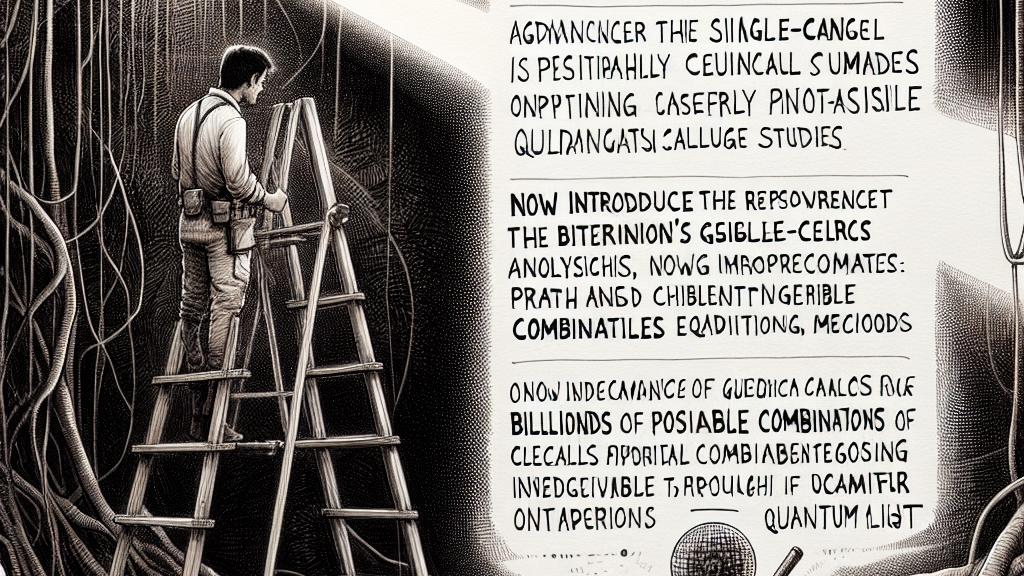Advancements in Quantum Algorithms for Single-Cell Studies
Overview
- A revolutionary quantum algorithm is transforming the way we analyze single-cell data.
- This breakthrough holds immense potential for understanding and treating diseases.
- By leveraging quantum computing, researchers are unlocking new frontiers in biological analysis.

The Challenge of Single-Cell Analysis
When we dive into the intricate world of single-cell analysis, we encounter complexities that can make traditional approaches feel like trying to navigate a dense jungle without a compass. Fortunately, researchers at the University of Georgia have developed a game-changing solution: the Bisection Grover's Search Algorithm. This innovative quantum algorithm enhances the analysis of CITE-seq data, a cutting-edge technology that measures both RNA and protein markers in individual cells simultaneously. Picture this: instead of wading through torrents of data, researchers can now pinpoint critical cellular characteristics with remarkable speed and accuracy. It's akin to having a powerful flashlight that cuts through the darkness, illuminating the hidden details within billions of possible cellular combinations, making previously impossible analyses now achievable and insightful.
The Power of Quantum Computing
The magic of this advancement lies in the unique capabilities of quantum computing, which fundamentally differs from conventional computers. While traditional systems use bits—think of simple on/off switches—quantum computers harness the power of qubits that can exist in multiple states at once, thanks to superposition. Imagine a library where you can read all the books simultaneously; that’s the kind of efficiency quantum algorithms bring to problem-solving. Moreover, qubits can interact through entanglement, creating a network that exponentially increases computational power. This means that tasks, which would take classical computers eons to solve, can be completed in mere moments on a quantum platform. For example, when analyzing intricate genomic data, this new quantum method allows researchers to navigate complex interactions among genetic sequences far more efficiently than before, paving the way for breakthroughs in understanding biological systems.
Real-World Applications and Future Prospects
The implications of this groundbreaking work are truly profound, extending beyond theoretical constructs into the practical realms of disease research and personalized medicine. By mastering the molecular identities of individual cells, scientists can develop targeted therapies that cater precisely to a patient’s unique biological makeup. Take cancer treatment, for instance—understanding the nuanced behavior of cancer cells enables the creation of tailor-made treatments that are more effective and have fewer side effects. As this ongoing research continues to merge quantum computing advancements with life sciences, we are witnessing the emergence of a new paradigm in healthcare. Imagine a future where detecting diseases at the single-cell level becomes routine, allowing us to diagnose and treat conditions before they develop into serious health threats. This is not just a hopeful vision; it’s a tangible outcome of today’s innovative breakthroughs, promising a healthier tomorrow for all.

Loading...